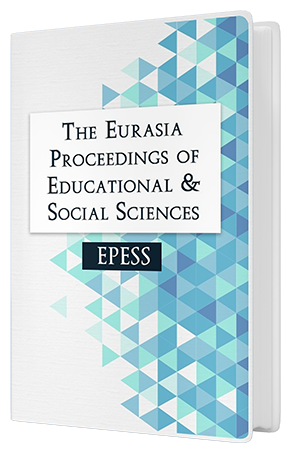An Investigation of Pre-service Middle School Mathematics Teachers’ Discussion Skills in the Context of Microteaching Lesson Study
Keywords:
Discussion skills, Lesson study, Pre-service teachersAbstract
High quality discussions can enable students to understand complex mathematical concepts (Smith & Stein, 2011). Effective mathematics discussions occur when teachers engage the listening, thinking, inquiring, and applying skills of their students (Lobato, Clark & Ellis, 2005; NCTM, 1991). Studies show, however, that teachers face many challenges in orchestrating mathematics discussions (Stein, Engle, Smith & Hughes, 2008). Novice teachers, in particular, struggle to coach their students through the discussion process (Chazen, 2000; Wood & Turner-Vorbeck, 2001). Therefore, the study found that orchestrating mathematics discussions is a skill that pre-service teachers should be encouraged to develop. The aim of this study was to develop pre-service middle school mathematics teachers’ mathematical discussion skills in the context of microteaching lesson study. Three senior pre-service teachers participated in and implemented three microteaching lesson study cycles. Data was obtained from lesson plans prepared by pre-service teachers, video recordings, observations, and field notes. Data was examined based on Smith and Stein’s (2011) method of orchestrating productive mathematical discussions via anticipating, monitoring, selecting, sequencing, and connecting. Results showed that as microteaching lesson study proceed, pre-service teachers acquired skills about anticipate student thinking and select students’ purposeful answers. In addition to that, pre-service teachers began successfully sequencing student thoughts and connecting important points related to big ideas.Downloads
Published
Issue
Section
License
Copyright (c) 2019 The Eurasia Proceedings of Educational and Social Sciences

This work is licensed under a Creative Commons Attribution-NonCommercial-ShareAlike 4.0 International License.
The articles may be used for research, teaching, and private study purposes. Any substantial or systematic reproduction, redistribution, reselling, loan, sub-licensing, systematic supply, or distribution in any form to anyone is expressly forbidden. Authors alone are responsible for the contents of their articles. The journal owns the copyright of the articles. The publisher shall not be liable for any loss, actions, claims, proceedings, demand, or costs or damages whatsoever or howsoever caused arising directly or indirectly in connection with or arising out of the use of the research material. All authors are requested to disclose any actual or potential conflict of interest including any financial, personal or other relationships with other people or organizations regarding the submitted work.




